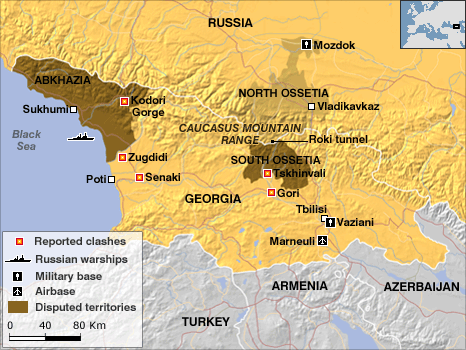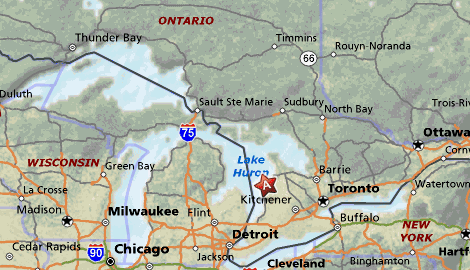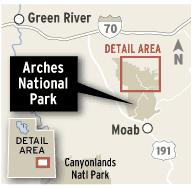Please do not reply to this Newsletter. You will likely get a response from a machine, not Nancy! For
feedback on the Newsletter or to correspond with Nancy, click here instead.
Russia Reacts
Since the start of the Bush administration in 2001, Russia has quietly endured insults. First, the nuclear
non-proliferation treaty was canceled abruptly by Bush/Cheney, who declared they were now going to
develop a new type of nuclear bomb - the bunker busting bomb. The Anti-Ballistic Missile (ABM)
treaty was also trashed.
- Nuclear Non-Proliferation Treaty
http://en.wikipedia.org/wiki/Nuclear_Non-Proliferation_Treaty
- In January 2002, the US Nuclear Posture Review recommended the development of
nuclear weapons designed to destroy hardened and deeply-buried targets, but the resulting
Robust Nuclear Earth Penetrator never gained full Congressional support and was
canceled in 2005.
Then there was the invasion of Iraq in 2003 and the incessant drumbeat of war against Iran, an ally of
Russia. Then the supreme insult - the plan to put missiles in neighboring Poland, pointing at Russia. The
claim was that these missiles were to point at Iran, but Poland and Iran are not bordering countries.
- US, Poland Strike Missile Deal While Russia Objects
July 2, 2008
http://www.cnn.com/2008/WORLD/europe/07/02/missile.defense.poland/index.html
- The United States and Poland have reached a tentative deal to place part of a ballistic
missile defense system on its territory, a plan that has drawn sharp objections from Russia.
Poland's political establishment still has to sign off on the deal and determine the next
steps. The Bush administration has long pushed to base missile interceptors in Poland. The
interceptor rockets would be linked to an air-defense radar system in the Czech Republic,
where officials agreed in April to take part in the system. The interceptors in the Czech
Republic could identify and shoot down missiles fired by Iran at Europe or the United
States. Russia fervently opposes basing the interceptors right across its border and says the
system's real target would be Russian missiles.
All of this, as one might imagine, has made Russia nervous.
ZetaTalk Commentary 2/3/2007: Russia has had an uneasy truce with Europe and the US, with
much closer bonds with China, an old Communist ally. Russia has also had business interests in
the Middle East, trading partners with Iraq and Iran, and is not happy that the US has parked
itself in Iraq, obviously eyeing not only the oil fields of Iran and Saudi Arabia but the oil fields in
Russia as well. They know the plan, laid long ago, was to conquer all oil fields of the world, just
ahead of the pole shift, so Russia has guarded her borders by alliances with Iran and China and a
firm grip on satellite countries being wooed by the US.
On the surface, Russia and the US cooperate on efforts such as maintaining the International Space
Station (ISS), with Russian shuttles carrying astronauts and supplies for months when the US shuttle
system was in disrepair. But even with ostensible cooperation between Russia and the US, tensions
remained. As the rhetoric against Iran increased, Russia subtly began to let the US military know that
any attacks on their allies would have consequences.
- Russian Bomber Buzzes U.S. Aircraft Carrier
February 12, 2008
http://www.cnn.com/2008/US/02/11/russian.bomber/index.html
- American fighter jets intercepted two Russian bombers, one of which buzzed a U.S. aircraft
carrier in the western Pacific. Russia's Defense Ministry said Tuesday that there was no
violation of flight regulations during the incident. A ministry official said the flights are
standard operating procedure for air force training. Russian bombers have been making
flights over the western Pacific for several months. There have been eight incidents off
Alaska since July.
ZetaTalk Analysis 2/16/2008: From the start of the current Bush administration, the US has been
threatening Russia. First, they backed out of disarmament treaties. Then they talked about
getting back into testing new nuclear devices such as bunker busting nukes. Then they talked
about placing nukes in Poland pointing across Russian territory, with the excuse that this would
be a deterrent to Iran. Russia was quite patient with all this saber rattling until recently, when
Putin sensed that Bush was getting desperate as his last term was running out and all attempts to
impose martial law and install Bush as president for life had failed. Putin is speaking to the US
military here, not to Bush, as he knows the military is not following the directives issued by Bush.
His warning is clear. He is warning that any confrontation will not be bounded as Bush hopes,
but will involve US territories.
The US economy has faltered over the financial strain of the war in Iraq, struggling with a falling dollar
and rising inflation as a result of the monstrous national debt. Meanwhile, Russia has perked up. Russia
has its own oil fields, and supplies Europe with much of its oil and gas through pipelines that Russia
controls. It can punish those European countries that affront it or get too cozy to western influences by
raising the cost of winter fuel, and has done this.
- Russia Cuts Off Gas to Ukraine in Cost Dispute
January 1, 2006
http://www.nytimes.com/2006/01/02/international/europe/02russia.html?
- Russia cut off the natural gas intended for Ukraine on Sunday as talks over pricing and
transit terms unraveled into a bald political conflict that carried consequences for
Ukraine's recovering economy and possibly for gas supplies to Western Europe. The
dispute comes a year after the Orange Revolution brought a pro-Western government to
power in Ukraine. It ends a decade of post-Soviet subsidies in the form of cheap energy
that allowed Russia to retain some influence over the former Soviet republics.
If Russia appeared weakened at the end of the Cold War, when compared to the US, the situation
appears to have now reversed. The US military is now exhausted, overstretched on two fronts with the
wars in Iraq and Afghanistan. The US military is in rebellion against Bush/Cheney ambitions to control
the oil fields of the world. The US economy is in tatters, with the US in debt to China, an ally of Russia.
The mood of the taxpayer is one of rebellion against the cost of pursuing Bush's ambitions. Enter Russia,
reasserting its rights to protect the breakaway portions of Georgia wanting independence from Georgia
and a closer association with Mother Russia. These breakaway states are currently under a UN
protection, with UN peacekeepers. Despite this, Georgia invaded South Ossetia with its military, betting
that Russia would once again remain passive. Georgia after all had been among the "coalition of the
willing" in Iraq, sending 2,000 troops there to assist the US during its invasion. Perhaps they assumed
the US would come to their rescue. After all, what are friends for?

- Day-by-day: Georgia-Russia Crisis
August 7, 2008
http://news.bbc.co.uk/2/hi/europe/7551576.stm
- A day-by-day look at how the conflict involving Russia and Georgia over the Georgian
breakaway region of South Ossetia is unfolding.
August 7: Georgian forces and separatists in South Ossetia agree to observe a ceasefire
and hold Russian-mediated talks to end their long-simmering conflict. Hours later,
Georgian forces launch a surprise attack, sending a large force against the breakaway
province and reaching the capital Tskhinvali.
August 9: Russian President Dmitry Medvedev says his country is seeking "to force the
Georgian side to peace" while his Prime Minister, Vladimir Putin, accuses Georgia of
committing "genocide". Georgian President Mikhail Saakashvili accuses Russia of seeking
to "destroy" his country.

The Zetas state that this is a tempest in a teapot, essentially a police action, not a war, and will simply
re-establish the status quo before Georgia's attack on South Ossetia.
ZetaTalk Analysis 8/9/2008: This conflict is already essentially over. Georgia did not anticipate
that Russia would defend their breakaway state, that portion of Georgia close to Russia that
declared independence from Georgia. They were betting that Russia would make noise but not
enter into a fray. What now? The breakaway state will remain separate from Georgia, as before.
This has proved true, but one thing is clear. The Russian bear is no longer asleep while its interests are
threatened. The bear is roaring.
- US Sends Aid, but Rethinks Policy
August 13, 2008
http://news.bbc.co.uk/2/hi/europe/7559855.stm
- The Pentagon has confirmed that it will be assessing Georgia's wider military needs in the
wake of the losses suffered at the hands of the Russians. So as well as re-assessing its
relationship with Russia, Washington will have to look again at whether its policy of
bolstering Georgia's independence has been entirely successful, and whether it can
continue exactly the same policy in the same way while still pursuing a strategic
partnership with Moscow. On a whole range of issues now, from the "War On Terror" to
missile proliferation, to the nuclear threat from Iran, the US has been doing its utmost -
over many years - to strike a partnership with Moscow. Throw in Russia's growing wealth,
influence and confidence and American threats to isolate Moscow begin to sound a bit
hollow.
-
- Russians Begin Georgia Handover
August 14, 2008
http://news.bbc.co.uk/2/hi/europe/7560100.stm
- Russian troops have begun handing over control of the area around the town of Gori to
Georgian security forces. Georgia attacked the rebel region of South Ossetia from Gori a
week ago, prompting Russian retaliation. In Moscow, Russian President Dmitry Medvedev
met the leaders of South Ossetia and Abkhazia - Georgia's other separatist region - and
pledged to support any decision the regions made about their borders.
Seaway Snapping
Recently we reported on the Green Bay hum, which the Zetas described as caused by rock under stress
as the seaway pulls apart. Now Kincardine, Ontario, just across Lake Huron from Michigan has
snapping rock. Draw a line between Kincardine, Ontario and the point where the I-35 bridge snapped
at Minneapolis and it passes right through Green Bay, Wisconsin. Most certainly, this is a stretch and
stress zone!

- Mystery Deepens Surrounding Kincardine Area Explosions
August 7, 2008
http://lfpress.ca/newsstand/News/2008/08/07/6379236.html
- The mystery has deepened surrounding explosions that shook the Kincardine area with
University of Western Ontario scientists ruling out a meteor shower. Highly sensitive
devices installed near Lucan by Western to monitor low frequency sound waves detected a
series of four impulses that lasted about a minute, starting at 11:12 p.m. on July 31. Five
minutes later a low frequency rumbling was detected coming from the Kincardine area.
With Ontario's largest nuclear plant located just north of Kincardine, the explosions have
triggered international media interest. Officials at Bruce Power have said there was
nothing unusual at the nuclear station.
-
- Residents describing walls shaking and windows rattling. If it had been caused by a meteor,
there should have been a bright fireball in the sky. The university has a camera system at
Kincardine aimed at the sky to capture the image of any meteors. In the past, the same
instruments have picked up mining explosions in Wyoming in the western U.S. and the
Shell refinery explosion in Sarnia. But the signals also don't fit another theory, that it was
caused by a sonic boom from a jet, he said. The closest fit for the signals from the
explosion, particularly the low rumbling, would be surface blasting at a mine. The only
mine in the area is Sifto Salt's underground operation at Goderich. A worker at the mine
yesterday who lives nearby said he has never felt any tremor from blasting at the salt mine
that stretches under the lake.
Per the Zetas, this is just another example of what is to come. Increasingly, the Earth changes will
become more serious, more violent, and man's infrastructure will be affected.
ZetaTalk Explanation 8/9/2008: Snapping rock is noisy. Rock under stress can create a hum,
described as a motor running somewhere underground or nearby. But when the rock snaps it is
not just a vibration. The seaway is tearing open! Many in Ontario and nearby New York state
report a hum or vibration.
Utah Crumbling
The Zetas have described a bow forming along the West Coast of the US, such that Alaska and the tip
of Mexico are pulled toward each other, creating stress in the rock inland from California. This bow, per
the Zetas, was responsible for the Utah mine collapse a year ago on August 6, 2007. Now another site
in Utah is showing stress, this one located south of the Utah mine collapse.

- Utah's Famous Wall Arch Collapses
August 9, 2008
http://www.sltrib.com/news/ci_10142089?source=rss
- Wall Arch, one of the most accessible major arches in the Devils Garden area of Arches
National Park, collapsed sometime Monday night. The middle of the arch just collapsed
under its own weight. Geologists could not recall the last time a major arch at the park
collapsed.
What else could have caused this arch to collapse? Per the Zetas, it is the delicate balance that holds
these arches in place that is easily upset when rock is encouraged to shift its position.
ZetaTalk Comment 8/16/2008: This arch survived great quakes along the San Andreas, such as
the 1906 quake, and the massive quake that last shook the New Madrid fault line in 1811-1812.
What is different about today, that the arch collapsed? The bowing of land does not merely shake
the land, where all move in unison, it creates a shift in how land is oriented. The base on one end
of an arch shifts so less of the base is supported, or more of the weight of the arch is unsupported
by rock. As this process proceeds, gravity disrupts the balance and crumbling of the arch occurs.
For those who question our explanation that a bow is occurring in the N American continent, we
ask this question. What has changed that the Wall Arch collapsed?

You received this Newsletter because you subscribed to the ZetaTalk Newsletter service. If undesired, you can quickly
Unsubscribe.
|

